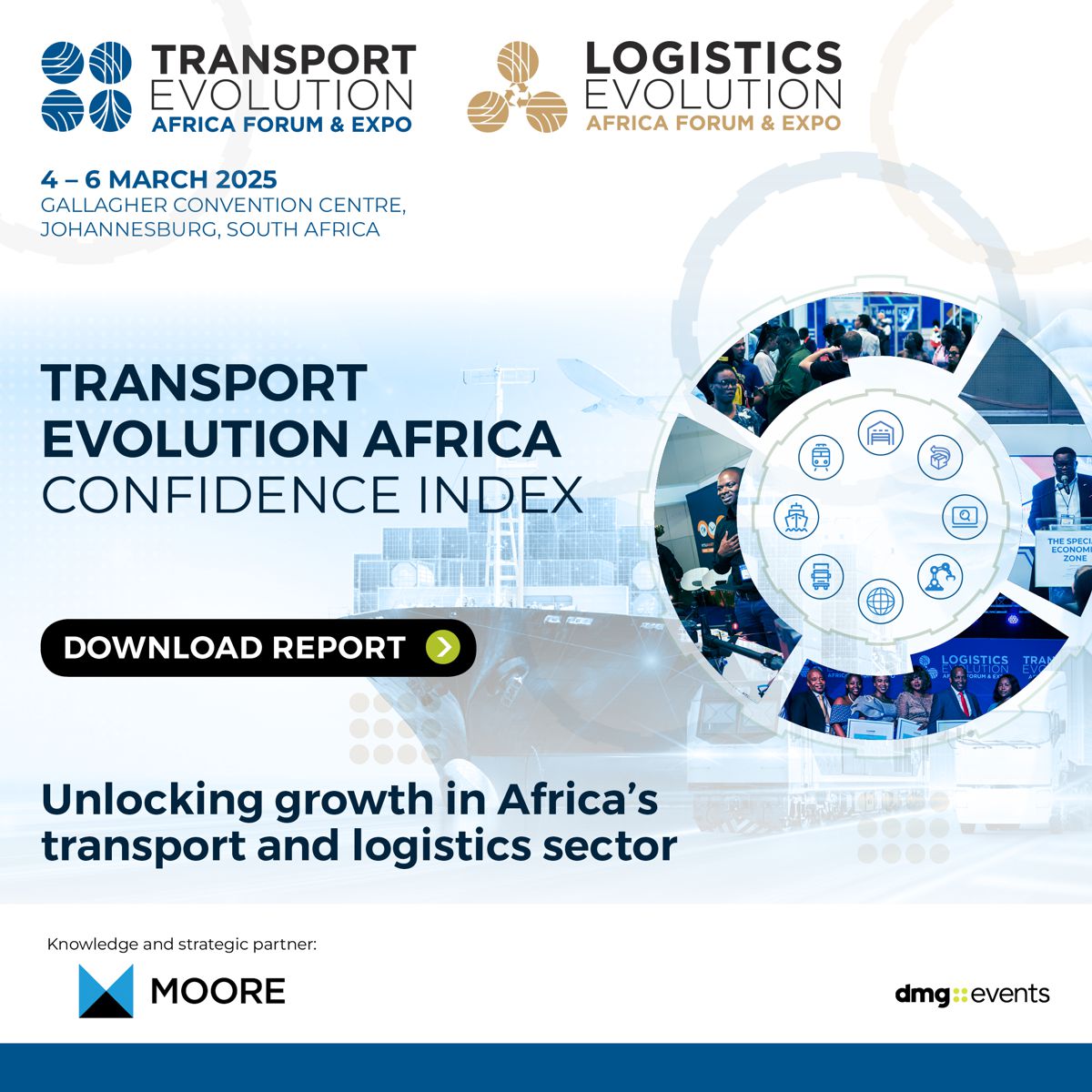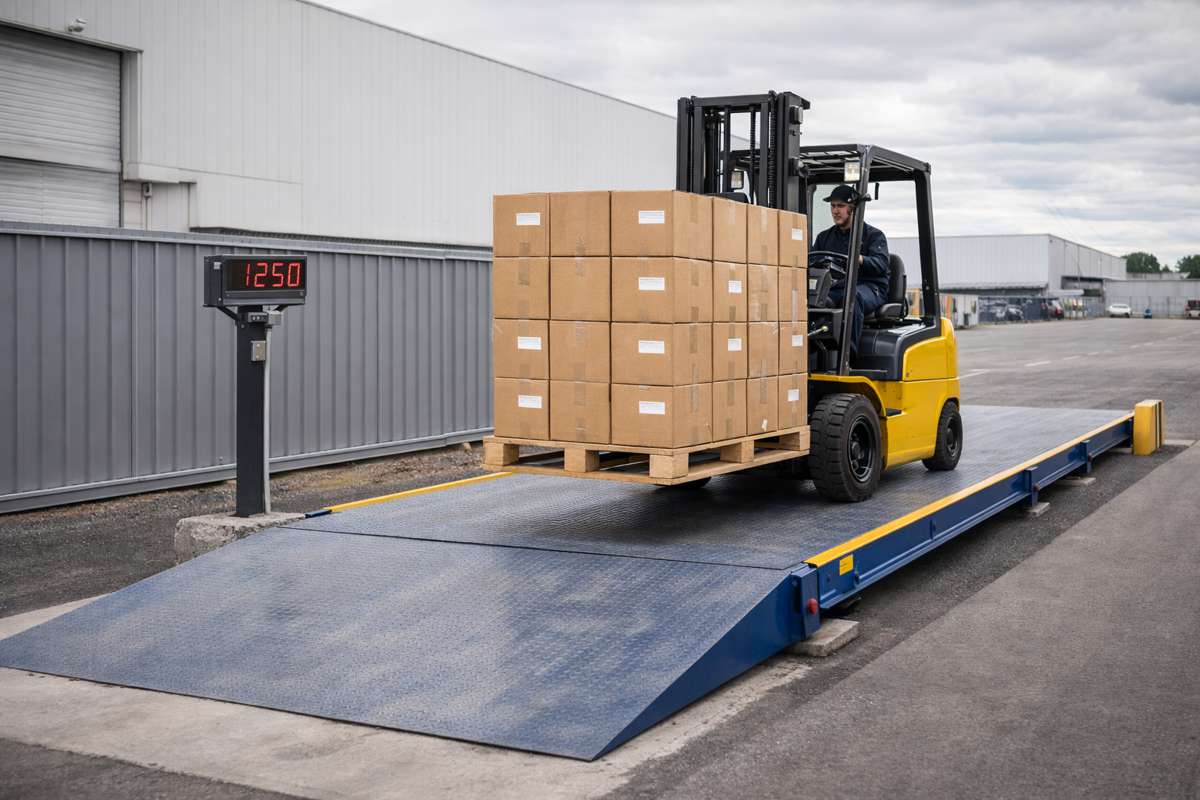Transport and Logistics Trends in Africa
A new survey by dmg events, in partnership with Moore Global, captures the pulse of business in Africa covering respondents from diverse industries on the critical trends shaping the continent’s transport and logistics landscape.
The findings shed light on key areas that demand attention and strategic planning.
According to the Transport Evolution Africa Confidence Index, which forms part of dmg’s Transport Evolution Africa Forum and expo, scheduled to take place from the 4-6 March 2025, it is essential to utilise Africa’s natural resources while leaning into productive partnerships to spur development.
“While there are challenges, there are many solutions, particularly through collaboration,” says Joshua Low, Vice President at dmg events.

Cross-border advocacy
A resounding 92.9% of respondents want regulatory change to facilitate cross-border business in Africa, acknowledging differing customs and clearing protocols. “The practical implementation
highlights that countries have a unique commercial reliance on customs revenue,” Low says.
Shipping industry to soar
Meanwhile, the shipping industry has a major role to play as the trading of food, fuel, raw materials and finished products is expected to rise substantially between Africa and the rest of the world.
“The only way these goods can be transported efficiently is by sea,” adds Costas Constantinou, Global Maritime Sector Leader at Moore Global.
The shipping industry must embrace change with new vessels fuelled by alternatives, while incorporating AI (artificial intelligence) for safer loading and unloading operations.
“The ports that will thrive will not only be the ones that are in geographically advantageous locations, but those that are compatible with the new fleet of trading ships; capable of handling new fuels, modern repair facilities, compatible with technologies and able to supply electricity to the ship while docked,” Constantinou adds, noting that an effective, central port is felt several hundred miles inland as many industries are created from the movement of goods, opening plenty investment opportunities.
Government’s role in infrastructure funding
Some 68.8% of respondents believe it is imperative to achieve sovereign independence and individual countries need to fund and own essential infrastructure while promoting Public-Private
Partnerships (PPPs) for operational efficiency.
Private sector empowerment
The majority (85.5%) stressed the importance of the private sector playing a more critical role in funding infrastructure, citing collaborative and transparent efforts between public and private
sectors as the best way forward.
Environmental preparedness
While 81% of respondents feel adequately prepared to adapt to changing environmental standards set by regulators, there are potential gaps.
Some companies may not realise the extent of required environmental changes, and the associated financial implications.
Environmental leverage
Stan Whiting, a Consultant at Moore Advisory Johannesburg says the continent holds a significant share of critical minerals essential for manufacturing renewable energy sources.
“Africa boasts the world’s youngest and fastest-growing population, presenting a unique opportunity to develop infrastructure in emerging markets, thereby enhancing its attractiveness for investments. Foreign investors are also raising enquiries about conducting business in Africa, emphasising the need for local specialists to navigate untapped markets.”
Comforting is that 81% of respondents feel adequately prepared to adapt to changing environmental standards set by regulators.
Rural development really needs support
An overwhelming 96.4% of respondents advocate for additional infrastructure to support rural development.
This initiative is deemed crucial for transporting employees, accessing critical minerals for renewable energy, and creating decentralised job opportunities to alleviate urbanisation pressures.
Cybersecurity concerns
According to Orange Cyber defence’s Security Navigator 2024 report, cyber extortion incidents grew by 70% in Africa this year1, but only 50.80% of survey respondents expressed concerns about
cybersecurity within their organisations.
It is an ongoing, crucial challenge to protect against illegal sharing of private information and intellectual property (IP). Robust systems and accountability must be in place to deter cyberattacks.
Wage cost reduction through automation
Only 28.1% reported successful wage cost reductions in the last five years through automation.
Embracing technology and understanding its potential for reducing costs and facilitating trade should be a priority for African businesses.
Technology infrastructure
Some 34.3% of respondents doubt whether current technology infrastructure is sufficient to support the Africa Free Trade Agreement.
“The issue is that countries have different technology platforms at different levels of sophistication,” adds Low. “The solution to adopting a free trade agreement includes employing bilateral or trilateral solutions between fewer countries and then considering if one bilateral solution can be networked with a second solution. Blockchain technology could be used to integrate data drawn from different systems without exposing internal IP.”
Automation anticipation
Most respondents (59%) foresee high levels of automation in the transport industry generally.
Larger companies are already leveraging automation for tracking and trip data, and any company wishing to grow in the sector will have to satisfy clients that cargo is secure and can be located at any time.
Concerns about doing business in Africa
Respondents are concerned about corruption, civil unrest, regulations, lack of trust in government and access to essential resources. The private sector could bridge the gap between government and foreign investors, while instilling confidence through entrepreneurial spirit, problem-solving and regulatory expertise.
“As Africa charts its course in the global business arena, these trends serve as a compass, guiding stakeholders towards informed decision-making and collaborative solutions for a thriving and resilient future,” Low concludes.
For more detailed insights, please download the full survey report.





























